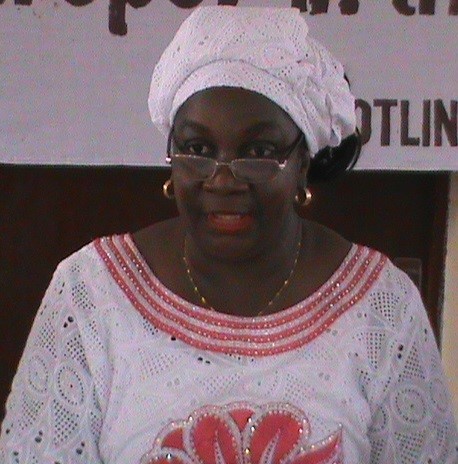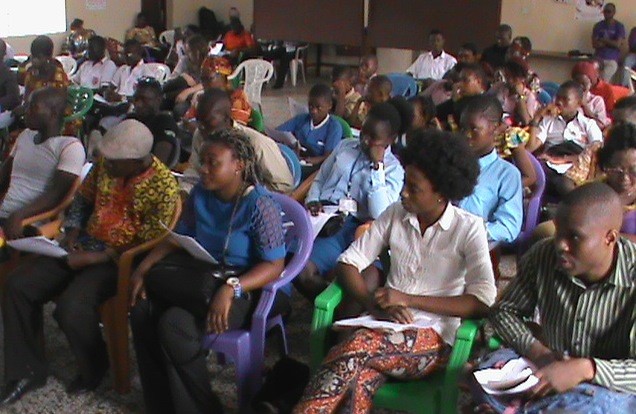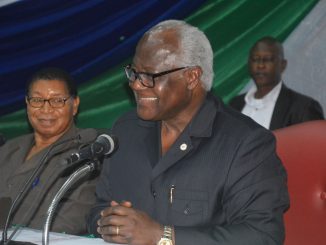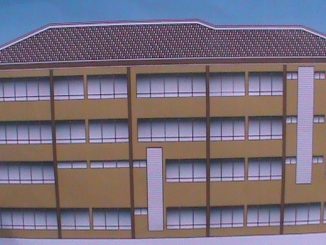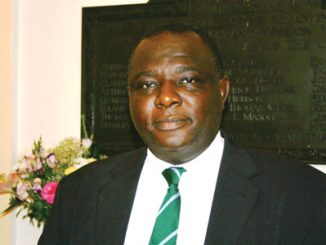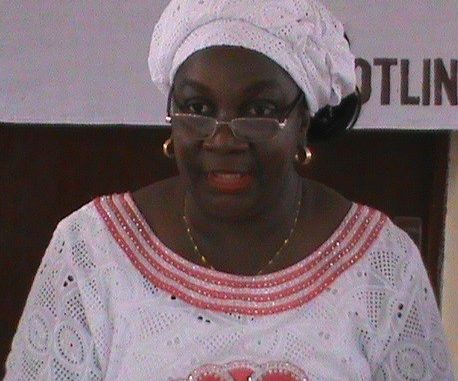
As Sierra Leone observes International Epilepsy Day, “70,000 affected in Sierra Leone” – Deputy Health Madina Rahman
By Jonathan Abass Kamara and Kadrie Koroma
Deputy Health and Sanitation Minister, Madam Madina Rahman has said that Epilepsy is a serious neurological disorder that affects the brain and causes sudden changes in how the brain works. It presents itself in the form of seizures, and not related to demons or witchcraft.
Deputy Health and Sanitation Minister 1, Madam Madina Rahman
Addressing participants during a one day Awareness Raising Meeting on Friday February 10, 2017 at the Council of Churches in Sierra Leone (CCSL) to mark the International Epilepsy Day celebration on Monday February 13, 2017, Madam Rahman observed that many with the epilepsy disorder are reluctant to admit it or to seek treatment.
Cross section of the audience
She informed her audience that most epilepsy seizures are either partial seizures, which affects just one part of the brain, or generalized seizures, which affect both sides of the brain at the same time. She noted that seizures can affect movements, senses, concentration, and ability to communicate and even consciousness itself.
Madam Madina Rahman reiterated that seizures differ in many ways, both in the form they take and in the way they make you feel, adding that some people experience only one type of seizure, others experience more than one type, or a combination.
Speaking on the theme: “Putting Epilepsy in the Picture”, the Deputy Health Minister stated that they are all touched by epilepsy, be you a family member, a co-worker, a friend or a neighbor, epilepsy is a condition that affects thousands.
She reminded all that most seizures are brief, but when seizures go on for too long or come in clusters, the person is at risk for a condition called status epilepticus, an ongoing state of seizure or multiple seizures with continued loss of consciousness.
Madam Rahman emphasized that with quite a good number of Sierra Leoneans living with epilepsy, awareness is the key, adding that Epilepsy Society and the Ministry of Health and Sanitation must work to increase awareness of the disease by offering seizure awareness workshops, and distributing information materials for employers, community organization, including school staff and students, child care providers, and religious leaders.
She said the international Awareness month is a time for Sierra Leoneans and the world over to be reminded of the prevalence of the disease, how it affects those living with it and their families, and what needs to be done to support efforts to find a cure.
The Deputy Minister encouraged all to educate the public about what to do when someone is having a seizure, adding that the commitment to education and action will literally save lives.
She expressed gratitude and appreciation to the Chairman Medical Assistance UK-Sierra Leone, Madam Sarah Snow for their humanitarian contribution towards people affected with epilepsy in Sierra Leone.
Giving an overview of Epilepsy, Prof. Radcliff Durodami Lisk of the Sierra Leone Epilepsy Association, said the causes of epilepsy are often unknown but some known causes happen before birth, at birth and after birth Embryonic or fetal development problems, infections, injuries to mother or maternal of some medication, illegal drugs or alcohol may impair the developing baby’s brain and causes seizure problems.
Dilating on the problem after birth, Prof. Lisk said head injury that involve a small amount of damage to brain cells after sustaining injuries related to car accident, sport injury, fall, blow to the head or injury due to gunshot or knife wound, brain tumors, stroke and brain infections are all category of disorder. There are more than 20 different types of epilepsy a person, and a person may have more than one type”, opined Prof. Lisk.
On treatment, Prof. Lisk said antiepileptic medications are available to control the electrical activities of the brain, reducing or stopping seizures. These drugs he advised have to be taken regularly and in sufficient doses.
Commenting on the misconception about Epilepsy in Sierra Leone, Epilepsy he said is not contagious or transferable, and that you can touch and hand the patient safely.
Other highlights include presentations by the Chairman, Medical Assistance UK-Sierra Leone, Madam Sarah Snow, the Mental Health Coordinator, Dr. Andrew Muana, and Mr. Max Bangura on the social aspect of Epilepsy, and Dr. Kadie Yullah who spoke on the available services in Sierra Leone.
Success stories from two patients with Epilepsy Testimonies formed part of

